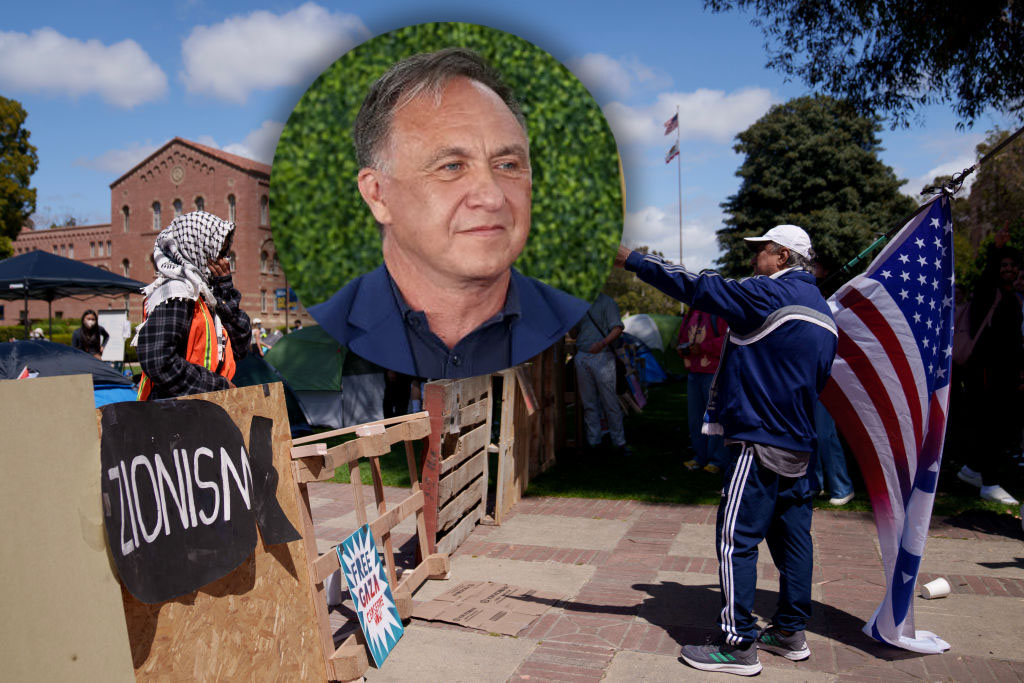There was a time when Dora Apsan Sorell could have really used the $3,043 she received from the German government last summer. The check was meant to compensate Sorell for her slave labor during the Holocaust.
But the 83-year-old Auschwitz survivor and retired doctor who lives in Berkeley gave the money away as soon as it arrived. She donated it to the American Jewish World Service (AJWS), which is among a handful of Jewish organizations trying to aid desperate refugees from the Darfur region of western Sudan.
Sorell, who learned about the crisis in Sudan from a television program, said the situation looks a lot like what happened to her and her family under Hitler. Now she is hoping that her gesture will help raise awareness among other Jews and motivate them to respond as well.
Since February, villagers in Darfur region have been murdered, raped and driven from their homes by a brutal band of government-backed, ethnically-Arab militias known as Janjaweed. Humanitarian groups and the U.S. government agree the government of Sudan is encouraging the ethnically motivated genocide campaign, but the world community has, as yet, done little to stop it.
Humanitarian and human rights groups have been sounding dire warnings about the genocide in Darfur since the situation escalated in February. And a growing number of Jewish groups and individuals have taken up the cause in recent months as well.
In looking at Darfur, Sorell has every reason to believe in the human capacity for evil. She lost her parents, two brothers and more than 40 relatives at Auschwitz. But this time, she believes, the world is supposed to know better.
“That a bunch of criminals can do this in the 21st century. That you can rape girls of 6 years old and kill their families and burn down their houses; it’s just unbelievable that the world can let this happen,” she said.
Sorell was born in the northern Transylvania town of Sighet. She was transported to Auschwitz with her parents, Herman and Zissel Apsan, and her brothers, Moishi and Yancu, in May 1944. Sorell last saw her mother when an SS guard drove them apart with a blow to Sorell’s arm. She believes the rest of her family was killed upon arrival.
Sorell survived at Birkenau, the concentration camp adjacent to Auschwitz, until December 1944. Then she was transferred to a forced-labor camp in Germany, where she worked in a munitions factory until the end of the war.
In the decades when Sorell and her family were struggling to start again, she said the reparations money would have been helpful. But even without it, Sorell built a life she is proud of.
“I don’t want to be a victim,” Sorell said of the reparations she gave away. “I’ve made it, after all.”
After the war, she was reunited with her high school sweetheart, Tzali Sorell. A member of the resistance, Tzali Sorell had been jailed before the Jews from Sighet were deported to the camps. He believes he survived because he was literally forgotten in prison. The two have been married for 59 years.
Trapped in communist Romania after the war, Sorell put herself through medical school and raised three children. She and her family were finally allowed to leave Romania in 1961, and after time in Europe and Brazil, they immigrated to New York in 1964.
She eventually became a tenured professor of rehabilitative medicine at New York Medical College. After they retired, the Sorells moved to Northern California to be closer to their grandchildren.
In 1982, when her first grandchild, Miriam, was born, Sorell began writing about her experiences in a series of letters. They now comprise the chapters of “Tell the Children, Letters to Miriam,” a memoir Sorell self-published in 1998.
For Sorell and her family, the past is as indelible as the number that was hastily tattooed on her left forearm by an SS guard at Auschwitz: A-7603. Even her 2-year-old grandson is aware of it. He shows Sorell that he is learning the alphabet by pointing to the “A” on his grandmother’s arm.
But Sorell knows that her past “is not just mine to keep,” she wrote in her memoir. “Being a survivor is a burden, and for me, it carries the responsibility to share it with others, to impart that experience to young people and acquaint them with the dangers of hatred and intolerance.”
Sorell estimated that she has spoken about the Holocaust to as many as 10,000 students in classrooms and summer camps, at the U.S. Holocaust Museum in Washington, D.C., and even at a prison program for men convicted of domestic violence.
Now she hopes that she can encourage others to speak out and give money to help the victims of Darfur.
More information about Dora Sorell is available on her Web site, www.letterstomygrandchildren.com.
Jewish and multifaith organizations working to help the victims of Darfur include: The American Jewish World Service, Emergency Sudan Appeal, www.ajws.org; Jewish Coalition for Sudan Relief, part of the Jewish Coalition for Disaster Relief, www.jdc.org/jcdr_co_sudan.html; and Save Darfur Coaliton, www.savedarfur.org.





















 More news and opinions than at a Shabbat dinner, right in your inbox.
More news and opinions than at a Shabbat dinner, right in your inbox.